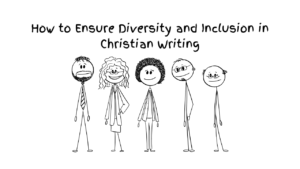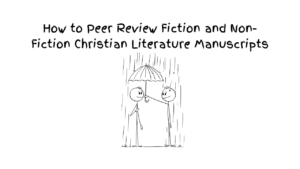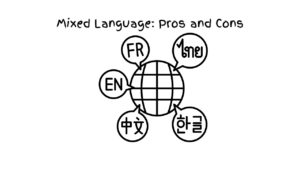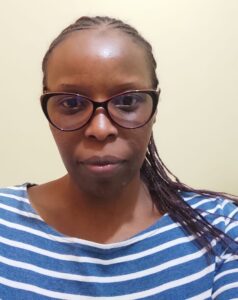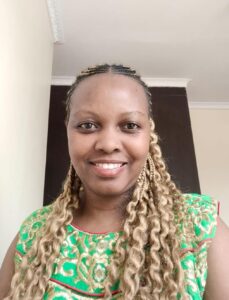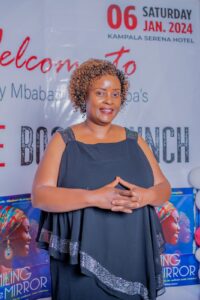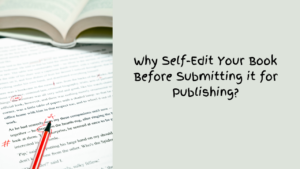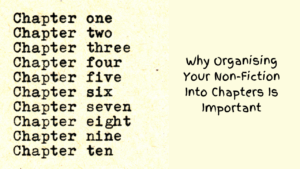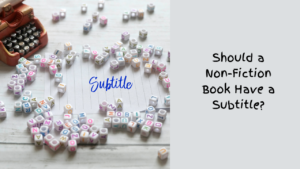For a few years now, I knew I would write a book and I had a collection of poems that I wanted to publish too.
Unfortunately, I lost most of my poems and so the desire to compile more waned with time. Sometime in 2021, I planned to start the writing journey, but never had the motivation and each time I planned to start, I got sidetracked.
It was in 2022, I visited the CLC bookshop and saw the wide variety of local books that my interest was quickened again and also after my sister-in-law, Kawira Baraka, had her children’s devotional book published and highlighted in the social media that I saw myself actually writing.
Time passed and I did not act on my plans until later in 2023 at the CLC bookshop once again, I made the decision and followed it up with signing up for the next writing class, encouraged by Dr. Muthoni Omukhango. This time I was intentional about it and paid up and started the classes diligently early this year.
The first month was exciting, learning new things and actually writing. I am old school and prefer the art of handwriting and I so enjoyed it, following the instructions we received in class.
I set up my writing area and a time table and for the first month all was good. I would even write for longer than the time I’d planned to.
Then I hit a block. I was writing on a very difficult part of my life and the emotions provoked in me were overwhelming, I just wanted to run away and hide. I got to process grief that I had not faced yet and writing became more of a chore than a delight.
I thank God for holding me up and enabling me to keep writing plus my son and daughter who kept cheering me on, even offering to type for me.
There was another snag in my writing journey, the typing. It took me forever to type and when I would transcribe, my emotions would be triggered all over again and I would take breaks every few minutes.
I thank God for our coaches who did not give up on me despite my challenges. The tips they shared with us were also very helpful and the best one was to always ask Holy Spirit to help, He always did.
Now that I have a manuscript ready, I am looking forward to even more writing, Holy Spirit helping me.
8e: How to Get ISBN in Kenya and Other African Countries
Publishing a book with multiple stakeholders requires clear communication and well-defined agreements to ensure smooth collaboration. Establish ownership rights, allocate expenses transparently, and outline recognition for each contributor's role. Best practices include drafting detailed contracts, maintaining open communication, and resolving disputes amicably. These steps protect relationships while ensuring the book's success. Here’s what you need to know. #RaisingAfricanVoices
Read More8f. How to Write a Contributor Consent Form for a Memoir Book
Publishing a book with multiple stakeholders requires clear communication and well-defined agreements to ensure smooth collaboration. Establish ownership rights, allocate expenses transparently, and outline recognition for each contributor's role. Best practices include drafting detailed contracts, maintaining open communication, and resolving disputes amicably. These steps protect relationships while ensuring the book's success. Here’s what you need to know. #RaisingAfricanVoices
Read More8d: How to Publish a Book with Multiple Stakeholders: Best Practices for Rights Ownership, Expenses and Recognition
Publishing a book with multiple stakeholders requires clear communication and well-defined agreements to ensure smooth collaboration. Establish ownership rights, allocate expenses transparently, and outline recognition for each contributor's role. Best practices include drafting detailed contracts, maintaining open communication, and resolving disputes amicably. These steps protect relationships while ensuring the book's success. Here’s what you need to know. #RaisingAfricanVoices
Read More8c: Terms and Conditions for Traditional Publishing/Adapting Existing Books into Other Versions
Adapting existing books into new versions, such as translations, audiobooks, or special editions, requires clear terms and conditions in traditional publishing agreements. These terms outline rights, royalties, and responsibilities for both the author and publisher, ensuring a smooth adaptation process. Properly defined agreements protect the integrity of the original work while maximising its reach and impact across different formats. Here’s what you need to know. #RaisingAfricanVoices
Read More7d: The Art of the Author Photo: Essential Specs for a Professional and Polished Image
Professional photos on a book’s back page play a crucial role in an author’s branding and marketing strategy. Learn More Here. #RaisingAfricanVoices
Read More6i: How to Ensure Diversity and Inclusion in Christian Writing
By embracing diverse voices, ensuring equitable access for underrepresented authors, and encouraging inclusive storytelling, authors and publishers can reflect the richness of God's Kingdom. This includes actionable strategies to amplify marginalized voices, promote cultural representation, and create a more inclusive literary ecosystem. With initiatives like multilingual publishing, fair contracting, and global partnerships, CLC Kenya leads the way in advancing DEI while staying true to Biblical principles. Get started here. #RaisingAfricanVoices
Read More6h: How to Peer Review Fiction and Non-Fiction Christian Literature Manuscripts
Peer reviewing Christian literature requires a thoughtful approach to ensure the manuscript aligns with Biblical principles while engaging readers effectively. For fiction, focus on character development, plot consistency, and spiritual themes. For non-fiction, assess clarity, theological accuracy, and practical application. Provide constructive feedback, highlighting strengths and offering actionable suggestions for improvement. A thorough peer review not only refines the manuscript but also upholds its spiritual impact. Get started here. #RaisingAfricanVoices
Read More6g: How to overcome the challenge of mixed languages in writing a manuscript
Writing a manuscript with mixed languages can be both enriching and challenging. To overcome this, establish clear guidelines for when and how to incorporate multiple languages. Use translations sparingly and only where necessary, ensuring they don’t disrupt the reader’s flow. Consider adding footnotes or a glossary for clarity and consistency. Tools like professional editors and language experts can help refine your manuscript while maintaining cultural authenticity. Get started here. #RaisingAfricanVoices
Read MoreThe biggest blessing was learning from a team that understand the responsibility and spiritual pressures of Christian writing – Elizabeth Wanjiru
Joining the CLC Kenya’s Group Writing Class was the greatest investment I’ve ever made. I wouldn’t be celebrating this milestone of a finished manuscript without the support of CLC Kenya. The biggest blessing was learning from a team that understands the responsibility and spiritual pressures of Christian writing. It was not any writing process, but […]
Read MoreIf you need a place that majors on purpose and God’s intentions for you as an author, CLC is your safe place – Eunice Zawadi Bickett
My writing journey was such a miracle. Sometimes, because of God’s indescribable love, miracles find you when you least expect. This writing class for me was that – a miracle, when I least expected it. This writing class opportunity came to me when I was least prepared. First, I was handling sensitive matters, and so […]
Read MoreWhat looked like an uphill task became so doable because each week we had meetings with pointers on what to do next – Christina Mwaura
Engaging with the craft of writing has often felt like a solitary pursuit, weighed down by the burden of procrastination and self-doubt. But my journey is a testimony of the incredible power of community and structured guidance in overcoming these obstacles. For more than a decade, the desire to write had been quietly growing inside […]
Read MoreMy friend, Gladys Juma, advised me that CLC Kenya was the best place to begin my writing. Truly so, it has been a wonderful journey – Joanne Kabiru-Mucheru
My journey began with a clean canvas of wanting to know how to write properly. I am not one to do things with imperfection – but rather prefer to do with excellence. Sometimes this is a hindrance but, in this case, I am writing a book that will outlive my own life, so really wanted […]
Read MoreI hit a block because I was writing on a very difficult part of my life and the emotions provoked in me were overwhelming – Mumbi Kariuki-Ndumbi
For a few years now, I knew I would write a book and I had a collection of poems that I wanted to publish too. Unfortunately, I lost most of my poems and so the desire to compile more waned with time. Sometime in 2021, I planned to start the writing journey, but never had […]
Read MoreI used the principle of show and tell, dialogue, statistics, anecdotes and in cooperated background details to make the story interesting – Lucy Muriithi
I had always desired to write my story but was unable to do so because of other commitments related to work. However, now that I have retired, I have ample time to concentrate and put my thoughts together on paper. I began writing my biography in bits and pieces in 2021. But it was not […]
Read MoreMy writing journey has illuminated a profound passion within me that had long remained dormant – Delphine Tumusiime Mugisha
First and foremost, I express gratitude to God for the presence of friends like Pamela, whose introduction led me to discover the incredible ministry of CLC. Without her, I might never have stumbled upon this enriching opportunity. Embarking on my writing journey has illuminated a profound passion within me that had long remained dormant, awaiting […]
Read More6f: How to Ethically Use Other People’s Public Stories in a Non-fiction Christian Book
Using public stories in your Christian book requires integrity and respect for the individuals involved. Always seek permission where possible, give proper attribution, and ensure the story aligns with your message while preserving the dignity of those featured. Avoid embellishment or distortion for dramatic effect, and focus on presenting truth with grace. By handling stories ethically, you honour both the subjects and your readers while maintaining your credibility as a Christian author. Get started here. #RaisingAfricanVoices
Read More6e: How to Elevate a Non-fiction Christian Book to Make it Personal and Engaging
Transforming a flat non-fiction Christian book into an engaging and impactful read requires authenticity and connection. Share your personal testimony, use relatable real-life examples, and offer practical applications to make your message resonate. Being vulnerable about your faith journey fosters trust, while reflective questions and actionable steps encourage readers to apply the lessons to their own lives. Get started here. #RaisingAfricanVoices
Read More6d: How to Use ‘Show Don’t Tell’ in Story Writing
"Show don't tell" is a fundamental principle in storytelling that encourages writers to use descriptive language, actions, dialogue and scenes to reveal information to the reader, rather than simply telling them outright. Get started here. #RaisingAfricanVoices
Read More6c: How to Use Dialogue in Story Writing
Effective dialogue is characterized by authenticity, clarity, and relevance to the story. It should sound natural and believable, reflecting the unique voices and perspectives of the characters. Dialogue tags, such as "said," "asked," and "replied," help identify speakers and maintain clarity in conversations. Get started here. #RaisingAfricanVoices
Read More6b: How to Write a Captivating Novel
A great novel is a complex interplay of various elements, but some key components often contribute to its greatness. Get started here. #RaisingAfricanVoices
Read More6a: How to Write a Devotional
A devotional book is a literary work designed to provide spiritual inspiration, guidance, and reflection for readers seeking to deepen their faith and relationship with God. Get started here. #RaisingAfricanVoices
Read More7c: Why Self-Edit Your Book Before Submitting it for Publishing?
Self-editing is a crucial step before submitting your manuscript for publishing. It allows you to refine your ideas, correct errors, and enhance the overall quality of your work. A well-edited manuscript not only demonstrates professionalism but also makes the publishing process smoother and more efficient. From grammar to flow and consistency, self-editing ensures your book is the best version of itself before reaching an editor's desk. Learn More Here. #RaisingAfricanVoices
Read More7b: Why Organising Your Non-Fiction Into Chapters Is Important
Organising your non-fiction book into clear, well-structured chapters enhances readability, engagement, and comprehension for your audience. Chapters create a logical flow, making complex ideas easier to digest while guiding readers through your message step by step. A structured layout also improves your book's professional appeal and allows readers to quickly locate topics of interest. Learn More Here. #RaisingAfricanVoices
Read More7a: Should a Non-Fiction Book Have a Subtitle?
A subtitle is a powerful tool for non-fiction books, offering clarity and appeal to potential readers. It provides additional context about the book's content, target audience, and benefits, helping it stand out in searches and on bookshelves. A well-crafted subtitle enhances discoverability, boosts SEO, and communicates your book's value in just a few words. Learn More Here. #RaisingAfricanVoices
Read MoreThanksgiving testimony for supernatural grace and divine help – Apostle Dr. Jeanne Lidigu
First and foremost, I am obliged to acknowledge that for me, this opportunity in itself is a testimony of God’s goodness and faithfulness through a human vessel. It was in the year 2016 when God began to impress upon my heart that I would write books and training manuals on Prayer. I did not know […]
Read MoreIt was a rewarding experience – Dr. Wilson Mbugua
I have had the desire to write a book on retirement planning for some time. I was not sure where to start or who was out there to genuinely assist me to fulfil my desire. I wanted to share the message with a wider audience on the importance of planning for lifestyle in retirement. The […]
Read MoreI am excited for the days ahead – Patricia Ahawo
In 2021, I made a conscious decision to go back to one of my favourite past times, which happens to be writing. I decided to intentionally rebuild the writing muscle that I had not exercised in a long time. It was not easy to start writing again; it took a lot of small starts, daily […]
Read MoreAn Incredible Experience – Caroline Opiyo
My writing journey as a member of the Diamond Writing Class has been an incredible experience. When I first joined the program, I was eager to develop my writing skills and become a better writer. The classes were comprehensive and engaging. They covered various aspects of writing such as grammar, syntax, style, just to mention […]
Read More5h: How to Write a Table of Contents
A table of content shows the things that are held or included in something. In the book industry, it is a list of the chapters or sections given at the front of a book or periodical. Here's how to write one. #RaisingAfricanVoices
Read More5g: How to Write an Acknowledgment
An acknowledgment section in a book provides the space to go into lenghty details in thanking the people who were sources of inspiration and support for your book and life. Here'show to write one. #RaisingAfricanVoices
Read More8b: What to Include in the Copyright Page and Complete the Copyrighting Process
Copyright law gives creators of original material the exclusive right to further use and duplicate that material for a given amount of time, at which point the copyrighted item becomes public domain. Here's what you need to know. #RaisingAfricanVoices
Read More5f: How to Write a Book’s Blurb
A blurb is a short yet descriptive account of the book that goes on the back cover or within the book sleeve of a hardcover book. It includes any information that represents the book best and intrigues the readers and shoppers to pick the book off the shelves. Here's how to write one. #RaisingAfricanVoices
Read More8a: Why Every Author Needs a Non-Disclosure Agreement (NDA)
Protect your intellectual property with a Non-Disclosure Agreement (NDA) in publishing! An NDA safeguards your manuscripts and creative ideas by establishing confidentiality between authors, publishers, and editors. It ensures your work isn't misused, offers legal protection, and secures your publishing journey. Learn how to prevent unauthorized use of your content, why documentation is essential, and how trusted publishers like CLC Kenya provide sample NDAs to keep your work safe. Don't let your hard work go unprotected—explore the importance of NDAs today! Here’s what you need to know. #RaisingAfricanVoices
Read More5e: How to Write an Author’s Bio
People are looking for reasons why they should spend their time reading what you have written. You need to instill confidence in your readers that you are knowledgeable on the subject matter by writing an appropriate bio. Here's how to write one. #RaisingAfricanVoices
Read More5d: How to Write a Book’s Conclusion
If your readers are in the conclusion chapter, it also means they read the whole book, they liked it, and now they want you to wrap it up. So don’t rash it. Give them what they want. Here’s how to write one. #RaisingAfricanVoices
Read More5c: How to Write a Book Introduction
Are you stuck on writing your book introduction? Here's how to... Hook the reader right from the beginning with a personal story from your life, a funny story, a joke, or just an interesting fact that causes him/her to want to continue reading. Here’s how to write one. #RaisingAfricanVoices
Read More5b: How to Write a Book’s Foreword
A well-written foreword can function as the ultimate third-party recommendation or endorsement for your book, generating interest and helping when it’s time to market your book. Here’s how to write one. #RaisingAfricanVoices
Read More5a: How to Write a Book Dedication
A book dedication is a way for you, the author to bestow a high honor on a person (or a group of people) you wish to praise or otherwise spotlight. This dedication note is often short and usually focused on one person (or a specific group of people). It’s supposed to be personal, rather than professional. It goes on the dedication page, which is in the very front of the book, after the title page. Here's how to write one. #RaisingAfricanVoices
Read MoreStep4b: Publishing Steps – Review
Is your manuscript due for a review towards getting published? The major focus during manuscript review is the general quality of the book. It is important to establish the overall completeness, scope and readership of the manuscript and whether the presentation and accessibility of the book is suitable. #RaisingAfricanVoices
Read MoreStep4a: Requirements for Self Publishing
Are you ready to be published? Use our 4 points check list and tick 'Published Author' box so you can move on to the next God-given assignment... #RaisingAfricanVoices
Read MoreStep3: Factors to Consider Before Self Publishing
Jesus, while talking to the disciples about following Him, asked them to count the cost. The same Scripture applies to authors today - you have to count the cost from the beginning to ensure you don't stop at some point in your book project's journey. #RaisingAfricanVoices
Read MoreStep2: Let’s Talk About Publishing
The self-publishing landscape has changed considerably in the past two decades with new technologies such as the Internet, and the $1 billion markets continuing to change at a rapid pace. Increasingly, there are numerous alternatives to traditional publishing, and self-publishing is becoming the first choice for writers. #RaisingAfricanVoices
Read MoreStep1: Prepare Yourself to Get Published…
Are you ready to publish your book? Here is how you need to prepare. Have your manuscript ready and explore the oprions available today. If you are stuck in getting it started or finished, there is several ways to get help. Explore and get published today! #RaisingAfricanVoices
Read MoreThe classmates gave serious reflection – Dominick Gitonga
Its been a worthwhile course. The trails were full of schedules to be met . My brain had to stretch a little more. The best experience of how to use the brain right . No one failed in their assignments. It was hard to have excuses. You see life is full of excuses that makes […]
Read MoreI used to write as my therapy for dealing with my grief – Teteyian Nangurai
My writing journey began in 2016 after the loss of my husband. I used to write as my therapy for dealing with my grief. I mainly wrote on social media, and I described my journey as a cancer caregiver to my late husband and his death. Each day I posted; my friends urged me to […]
Read MoreYour reverence for God and professionalism is a force to recon with – Racheal Munyoro
Am indeed indebted to the CLC team.Through your continued assistance I was able to pen down my manuscript.You are such an inspiration.Your reverence for God and professionalism is a force to recon with. To every one with a vision of writing a book I recommend CLC unreservedly Thank you Post Views: 1,499 Subscribe for wholesome […]
Read MoreI was taught among other things, the purpose of Christian authorship – Pacifica Mochache
If you are a Christian and have always wanted to write Christian literature but did not know how to start or how to lay out your book, then CLC is the right place to go to. I had an inspiration to write a book and for many years I could not write past two pages […]
Read MoreThe patience and calmness of our teachers was so profound – Roselyne Belinda
Eversince, my experience in the writing class has been great, I have learnt a lot that I never knew about! The encouragement through out the entire process was out of this world, the patience and calmness of our teachers has been so profound. Unlike the way other publishers were rough and not giving us a […]
Read MoreBeing helped to write on even when you don’t feel like has been more fulfilling – Margaret Abukutsa
My experience with the Jasper writing class has been awesome. I had to be away for a while at the beginning and the class just praying with me during the surgery period was humbling. Being helped to write on even when you don’t feel like has been more fulfilling towards the end when the whole […]
Read MoreI sacrificed most of my weekends with the determination of accomplishing the work – Dr. Naomy Olero
My name is Dr. Jebet Naomy Olero. I learnt of the writer’s class when I was nominated for the ACABA award, though I did not win It, I learnt a lot about CLC. I was enrolled in the Oriental Class with the intention of writing a book entitled The Assigned assignment though I had started […]
Read MoreSubscribe for wholesome content!






